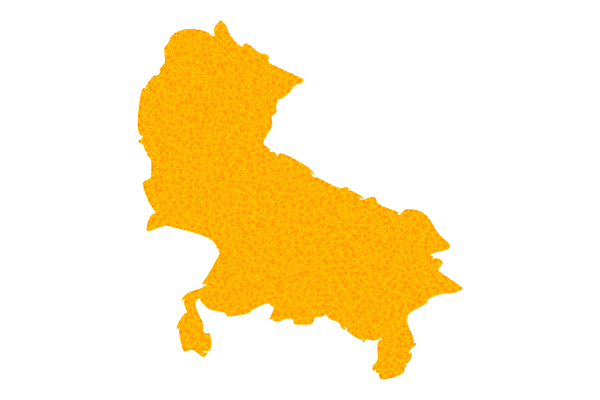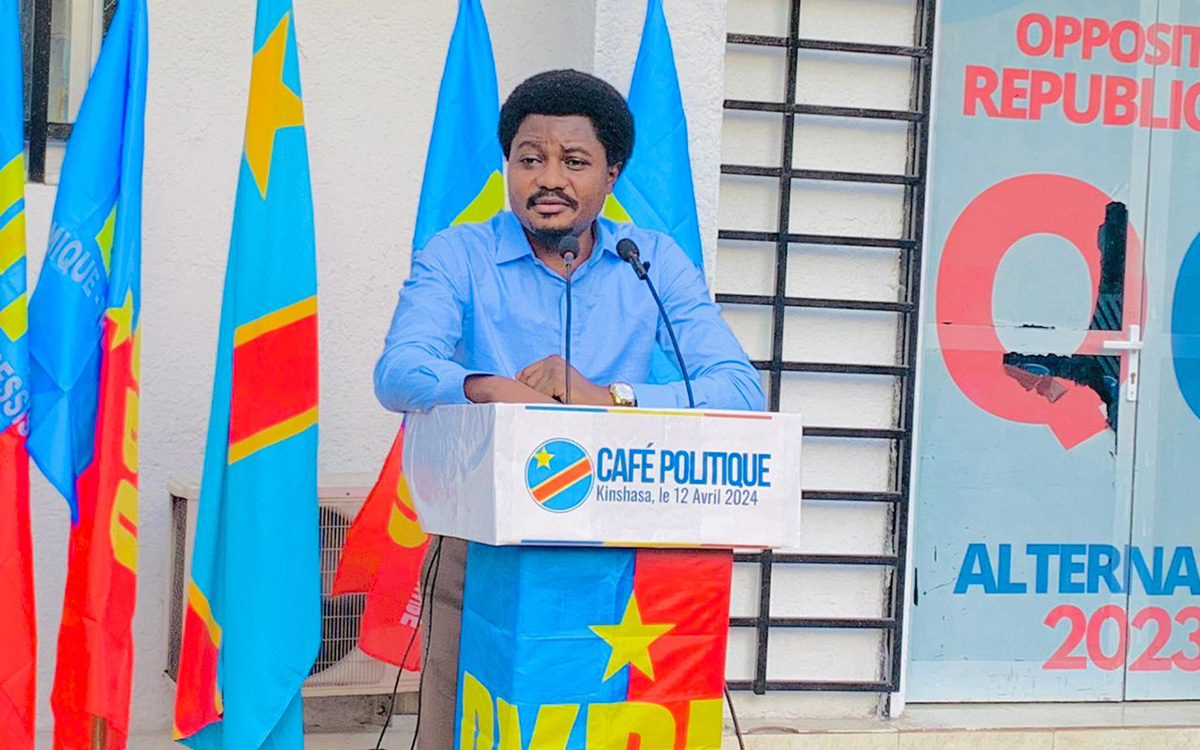World
Election in India’s most popular state seen as crucial LGBTQ rights test
Right-wing Bharatiya Janata Party currently governs Uttar Pradesh

India’s most populous state and a battleground for Prime Minister Narendra Modi will hold the election in seven phases in February as the Election Commission of India has announced.
The Uttar Pradesh election is the key prize in India’s parliamentary election as the state holds 80 parliamentary seats, the most in the country. Uttar Pradesh’s LGBTQ community and LGBTQ people from across the country have been eyeing this election because it can play a crucial role in policy changes for the community in India.
The Bharatiya Janata Party (BJP), a right-wing nationalist party, is ruling Uttar Pradesh. The party is also ruling the country under Modi, but it has not been supportive of same-sex marriage.
“We are not a minority anymore. The community is thriving in the state,” said Lovpreet, a Lucknow-based activist who works for transgender rights in Uttar Pradesh. “If the current government is not going to give us the right for same-sex marriage, we should remove the government in this election.”
The ruling party is yet to release its election manifesto, but the party is not considering listing LGBTQ issues in it.
A newly married same-sex couple from New York last year applied for an OCI (overseas citizen of India) Card, which would have allowed them multiple entries and a multi-purpose life-long visa to visit India, but the country did not recognize them as legally married and refused to issue it to them.
The couple filed a petition in Delhi High Court. Solicitor General Tushar Mehta, who is the central government’s legal representative, stated in response to the petition that marriage is permissible between a “biological male” and “biological female” and the government therefore cannot issue an OCI Card to their spouse.
Although India struck down a colonial-era law that criminalized homosexuality in 2018, there is still no law for same-sex marriage. The LGBTQ community has been demanding for years that political parties legalize same-sex marriage, but the issue is yet to appear in any party’s manifesto.
Lovpreet, who lives in Uttar Pradesh, believes that BJP is doing some good, like forming a trans advisory board last September.
“BJP is slowly moving towards being LGBTQ friendly, and if given the time and opportunity, it can do some good in the future,” said Lovpreet.
The Indian National Congress (INC), a leading central left-wing party, is also fielding its candidate in the state election, but the party does not see LGBTQ issues as important.
Dr. Shashi Tharoor, an MP and chair of All India Professionals Congress, the INC’s professional wing, refused multiple requests to speak on the legalization of same-sex marriage. The INC last week released its manifesto for the Uttar Pradesh election, but there were no promises for the LGBTQ community.
Former Defense Minister Jitendra Singh, an INC member who will set the party’s agenda ahead of the Uttar Pradesh election, also refused to speak about the legalization of same-sex marriage and other LGBTQ issues in the state and the country.
Ram Gopal Yadav, the leader of the left-wing socialist Samajwadi Party and the head of the Council of States (Rajya Sabha), the upper house of the Indian Parliament, in 2013 while speaking with the media explicitly said that homosexuality is “unethical and immoral.” But the Samajwadi Party has recently changed its tone regarding the community.
“With every aspect, whether it is farmers, whether it is women, whether it is children or the LGBTQ community, there will be continuous policy measures of the party that are progressive and liberal,” said Samajwadi Party spokesperson Ghanshyam Tiwari. “When the government is progressive and not bounded by dogma, then every issue related to any community has to be looked at in a manner that gives equal opportunity and be empathetic towards them. The more vulnerable the community is, the greater government needs to do,” he added further.
The Mayawati Prabhu Das-led Bahujan Samaj Party, a national party that is running in the Uttar Pradesh election, has emerged as an LGBTQ ally. The party, however, has not released its election manifesto and it is yet to be seen if it will include LGBTQ issues.
There is no political party in Uttar Pradesh or the country with significant LGBTQ representation.
Tiwari in a statement to the Washington Blade said there is no plan yet for the Samajwadi Party to field candidates from the community in the upcoming election, but the party can consider it for the upcoming parliamentary election.
“The central government is not decriminalizing same-sex marriage. They are looking at the conservative vote bank,” said Preeti Sharma Menon, a spokesperson of the Aam Aadmi Party.
Aam Admi Party is a national party in the country. The party had fielded candidates in previous Uttar Pradesh elections but had no significant luck.
“To appease conservative voters, the ruling party, the BJP, is not taking steps to legalize same-sex marriage,” Menon added further.
The Aam Aadmi Party in the previous parliamentary election had a trans candidate from Uttar Pradesh. The party has expressed its desire to field other candidates in the state’s election from the community.
The BJP is ruling both the country and the Uttar Pradesh with no intention to support or address LGBTQ issues.
Senior BJP leader Sudhir Mungantiwar from the state of Maharashtra last year made several homophobic comments in Parliament. The party did not punish him, nor did other political parties condemn his statements.
It is yet to be seen how this election impacts policies of different political parties for the LGBTQ community in the upcoming parliamentary election of the country.
Mohit Kumar (Ankush) is a freelance reporter who has covered different stories that include the 2020 election in the U.S. and women’s rights issues. He has also covered NASA, the European Space Agency, the Canadian Space Agency and loves to help people. Mohit is on Twitter at @MohitKopinion and can be reached at [email protected].
India
Indian political parties for the first time include LGBTQ rights in election platforms
Voters will begin to cast ballots on April 19

The world’s largest democratic exercise will begin in India on April 19 as citizens begin to cast their votes in the country’s election.
This year’s election is different because national level political parties for the first time are promising to extend marriage rights to same-sex couples as part of their election platforms.
The Indian National Congress, one of India’s oldest political parties, promised after wide consultation that it would introduce a bill that would recognize civil unions between couples who are part of the LGBTQ community. The party, which has governed India for the majority of the period since independence from the U.K. in 1947, has refrained from taking a stance on laws that include Section 377, which criminalized consensual same-sex sexual relations.
Then-Health Minister Gulam Nabi Azad in 2011 when the INC was in power said homosexuality is a disease. He made the controversial comment while speaking at an HIV/AIDS conference in New Delhi, the Indian capital.
“Unfortunately, this disease has come to our country too,” said Azad. “Where a man has sex with another man, which is completely unnatural and should not happen but does.”
When the Delhi High Court was hearing the Naz Foundation case, the Home Affairs Ministry opposed the striking down of Section 377 based on its belief that homosexuality cannot be morally condoned. The INC never struck down Section 377, which criminalized homosexuality, in parliament.
A 5-judge panel on the Supreme Court on Sept. 6, 2018, decriminalized consensual same-sex sexual relations.
The Communist Party of India (Marxist) on April 4 unveiled its platform with a range of socialist commitments, including support for LGBTQ rights. Among these pledges is to amend the Transgender Persons (Protection of Rights) Act 2019 to address community concerns and ensure legal recognition and protection for same-sex couples akin to marriage.
The platform also outlined plans to introduce a bill similar to the Special Marriage Act of 1954, which allows partners to be listed as dependents and facilitating like inheritance, alimony in the event of divorce and other issues. The party further pledged to enact a comprehensive anti-discriminatory bill that would include LGBTQ people, ensure quotas in educational institutions and implement horizontal reservations in employment.
Addressing the issue of crimes against LGBTQ people, the platform promised to treat such offenses on par with crimes against heterosexuals. The platform also calls for tackling bullying, violence and harassment of gender non-conforming and LGBTQ people in educational settings, enforcing anti-hazing policies and combating hazing based on sexual orientation and gender identity.
The platform further touched issues related to transition and informed consent.
The Special Marriage Act of 1954 is a law that provides for civil unions among Indians and Indian nationals who live abroad, regardless of the religion or faith followed by either party. This law enables people from two different religious backgrounds to enter into marriage. Parliament in 2019 passed the Transgender Persons (Protection of Rights) Act that extended rights to trans people.
Brinda Karat, a former member of the Rajya Sabha, the upper house of the Indian Parliament, and leader of the Communist Party of India (Marxist), spoke with the Washington Blade and said the current government has homophobic ideas that are not acceptable to the party.
The ruling government under Prime Minister Narendra Modi is striving to secure more than 400 parliament seats in the upcoming election, aiming for a substantial majority.
Various polls conducted by Indian news organizations indicate a probable victory for the ruling Bharatiya Janata Party. In response to the BJP’s dominance, Congress and several national and regional parties have joined forces as the Indian National Developmental Inclusive Alliance.
This alliance comprises 26 opposition political parties. Despite its formation, however, there is no clear coalition strategy in place and only two parties have included LGBTQ-specific policies in their election platforms.
The Blade reached out to Congress’ spokesperson for comment, but has not received a response. The BJP also did not respond to a request for comment.
The party has yet to release its election platform.
Ankush Kumar is a reporter who has covered many stories for Washington and Los Angeles Blades from Iran, India and Singapore. He recently reported for the Daily Beast. He can be reached at [email protected]. He is on Twitter at @mohitkopinion.
Africa
Ugandan activists appeal ruling that upheld Anti-Homosexuality Act
Country’s Constitutional Court refused to ‘nullify’ law

Twenty-two LGBTQ activists in Uganda have appealed this month’s ruling that upheld the country’s Anti-Homosexuality Act.
The Constitutional Court on April 3 refused to “nullify the Anti-Homosexuality Act in its totality.”
President Yoweri Museveni last May signed the law, which contains a death penalty provision for “aggravated homosexuality.”
The U.S. subsequently imposed visa restrictions on Ugandan officials and removed the country from a program that allows sub-Saharan African countries to trade duty-free with the U.S. The World Bank Group also announced the suspension of new loans to Uganda.
Media reports indicate Sexual Minorities Uganda Executive Director Frank Mugisha and Jacqueline Kasha Nabagesara are among the activists who filed the appeal.
Africa
Congolese lawmaker introduces anti-homosexuality bill
Constant Mutamba’s measure seen as distraction from country’s problems

A member of the Democratic Republic of Congo’s National Assembly who is a leader of the country’s opposition party has introduced a bill that would criminalize LGBTQ people.
Part of the bill that Constant Mutamba, leader of the Dynamic Progressive Revolutionary Opposition platform, has put forth states anyone who “commits a homosexual act (including acts and gestures) will be liable to a 5- or 10-year prison sentence.”
The country in recent years has seen government leaders and civic society target the community with anti-LGBTQ sentiments.
The Superior Council for Audiovisual and Communication, Media Regulatory Authority last June cautioned the media against showing LGBTQ-specific conversations. Several activists have criticized Mutamba’s bill, saying it seeks to move attention away from governance, service delivery and other pertinent issues in the country.
Sirius Tekasala, a human rights activist, said a person’s sexual orientation does not impact issues of governance.
“The proposed bill does not go in the direction of improving the socio-economic life of the Congolese people,” said Tekasala. “It’s not homosexuals who prevent you from doing your job well or from breathing. This is a violation of human rights.”
Mbuela Mbadu Dieudonné, a social analyst and trade unionist, said the bill is just a way of deviating people from the pertinent issues.
“He should suggest how to get the Congolese people out of this precariousness of life which is growing on a daily basis,” said Dieudonné. “When we don’t know the real problems of the Congolese people, he sets himself up as the great director of scenes to distract the Congolese people.”
Many Congolese, however, seem to support the bill and have applauded Mutamba for drafting it.
This is not the first time that such kind of a bill has been drafted.
An anti-homosexuality bill introduced in 2010 would have sentenced people who engage in consensual same-sex sexual relations to between three and five years in prison. The measure, however, did not become law.
Mutamba’s bill, however, may pass with Uganda’s Anti-Homosexuality Act in effect. The country’s Constitutional Court earlier this month upheld it. Burundi, Tanzania and other neighboring countries are also considering similar measures.
Many Congolese people view LGBTQ rights as a Western phenomenon that disregards their religious and cultural beliefs. LGBTQ Congolese are among those who have fled the country and sought refuge in the Kakuma refugee camp in Kenya and other places.
Consensual same-sex sexual relations are not criminalized in the Democratic Republic of Congo, but Congolese law does not recognize same-sex marriages.
-

 Africa3 days ago
Africa3 days agoCongolese lawmaker introduces anti-homosexuality bill
-

 Colorado5 days ago
Colorado5 days agoFive transgender, nonbinary ICE detainees allege mistreatment at Colo. detention center
-

 World3 days ago
World3 days agoOut in the World: LGBTQ news from Europe and Asia
-

 Real Estate4 days ago
Real Estate4 days agoBoosting your rental property’s curb appeal










